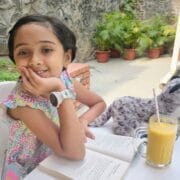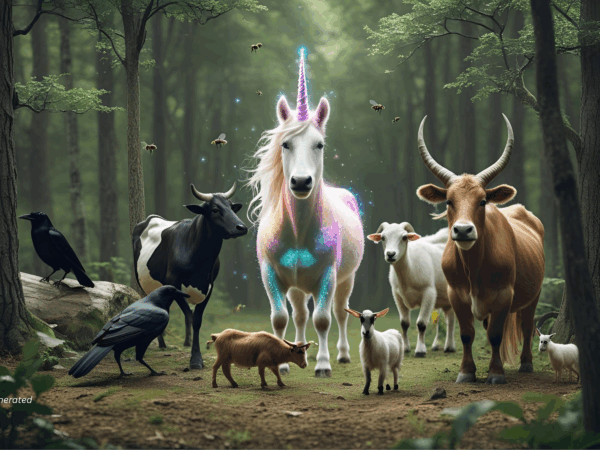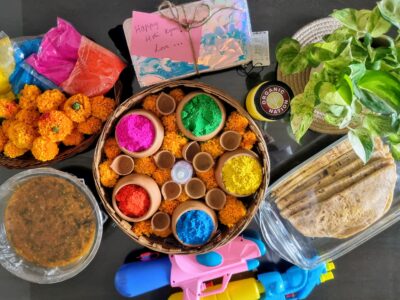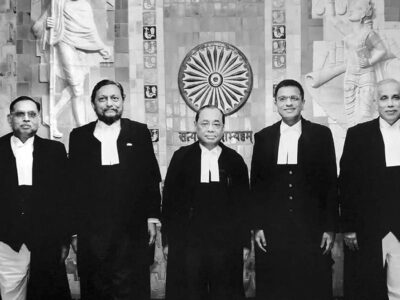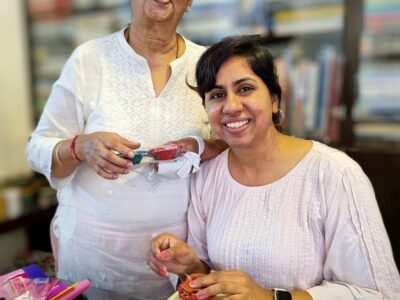I have always been intrigued by people of one religion taking part in the rituals/celebrations/traditions of another. I am, of course, an atheist. But religion fascinates me, and if there is one subject I have studied the most, it is how religion and its second and further order effects have moulded the world over time.
That said, every Janmashtami, I see the burqa-clad mother holding the boy dressed as baby Krishna. I see Muslim film stars bringing home the Ganapati idol and dancing at its immersion. I see the Holi film in which a Muslim, accidentally coloured, wholeheartedly partakes in the festivities thereon. I see little children in skullcaps with Diwali sparklers during the festival of light. I hear of Muslim women singing songs asking for Ram to be born to them (or in their households). And I see Muslim musicians and dancers performing devotional songs in temples and other such places.
Recently, I am also seeing videos of Muslims vigorously waving the bhagva flag and giving away water to Ramnavmi celebrants (since when have Hindus started celebrating Ramnavami with such gusto? OK, rhetorical question; don’t answer that), who then hug their Muslim brethren. Inspirational music plays in the background. And people on social media share it with pride and emotion as examples of a syncretic culture.
To be honest, I shall hold my judgement. Till I see Hindus celebrating Muslim festivals/traditions/culture/costume/food with equal gusto. Till I see an Eid celebration being catered to by Hindus along the route. Till I see Hindu youth joining a Muharram procession and beating their chests along with their Muslim brethren. Till I see a Hindu waving an Islamic green flag with the chaand-taaraa. Till I see a Hindu household celebrate Eid (OK, this seems to be happening in some places, but isn’t given as much coverage as Muslims celebrating Holi, for example). Till I see Hindus standing outside the Jama Masjid offering Muslims exiting it after their Eid prayers sweets and sharbat.
And just going to a Mushaira or being able to recite a line from Ghalib’s poems does not count. Nor simply going to your one Muslim friend’s house for sheer-khurma on Eid. Nor telling anyone who listens how much you love biryani. And yes, ditto, lusting after Muslim ‘studbulls’. That’s not co-celebrating. That’s appropriation. Also, that is making the same mistake as the RW: mistaking Ghalib and Biryani for Muslimness. Just. Don’t.
That said, and jokes aside, even if as an atheist, all of this is unnecessary and no one need celebrate any of these festivals as religious ones (if they must celebrate changing seasons or some historical journey at all), the truth is that if we must abrogate to ourselves the right to call ourselves a syncretic culture where all streams come and become one, and it becomes difficult to tell one from the other distinctly, we must do more than hold up and felicitate Muslims who cross over and mix with Hindus, adopt their customs and traditions, and partake in their festivals. The true test of this democracy will be when (if?) the Hindus do the same. For the majority and the powerful, the minority and the powerless apeing them and adapting and adopting their habits isn’t a sign of an egalitarian or a syncretic society, as we keep claiming. It is when the majority finds it important to not just participate in the minority’s culture (without appropriating it, of course, cue the Mushaira), but to make a show of it, to send a message that even if they are not the most, they are equal, and are welcome, is when you can say the society is truly evolved.
Till then, it’s just another form of virtue signalling. To make us, the majority, feel good about ourselves. Self-satisfying propaganda of the privileged for the privileged. Not unlike masturbation. Except this one’s shared on social media. With pride.
